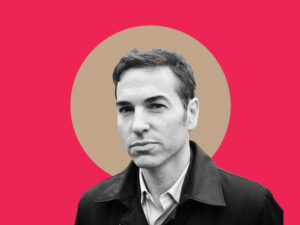We’d like to share some letters we’ve been receiving from listeners like you. The first is from someone seeking advice on an ethical issue.
“Hi there. This is Michael Garcia from San Francisco, and I need some advice.
A friend of mine, several years ago, did some earthquake relief work in Pisco, Peru with an NGO called Burners Without Borders. Over the course of a few months there, she developed a personal relationship with one of the women who lived in Pisco, a mother. Since that time, the relief project has changed hands to a different NGO and has been re-organized and finally abandoned due to lack of funding.
In the years since then, the mother I mentioned has, on several occasions, reached out to my friend personally to ask for financial help. Over the years, she’s had several tearful phone conversations with this woman, who is in a somewhat desperate situation. However, my friend is not rich, she barely scrapes by on freelance design work, and she’s really not in a position to continually and personally sponsor this family.
I’d appreciate your take on what my friend should do in this situation.”
What have you done when someone where you’re working has asked you for money? Have you continued these financial relationships for years after you’ve left a place like Michael’s friend? When is it okay to cut the financial cord, if ever?
Michael has one more question:
“How does one manage personal relationships when doing work like this? Is this situation a necessary consequence or a common pitfall of voluntourism?”
Sign up for our free newsletters
Subscribe to NPQ's newsletters to have our top stories delivered directly to your inbox.
By signing up, you agree to our privacy policy and terms of use, and to receive messages from NPQ and our partners.
What have you done when someone in that situation has asked you for money? If your organization has specific rules around this, let us know what they are.
A few of you also wrote in after our interview with the Center for Effective Philanthropy’s Phil Buchanan. Phil took issue with those from Silicon Valley who say that nonprofits will become more effective if they act more like start-ups. Here’s some of what Phil said during our interview: “There’s been this tendency to equate effectiveness with “business thinking” or market principles. Folks sometimes forget that philanthropy is addressing the very problems that have defied market solutions or in some cases are the result of market failure. And it’s hard work, it’s difficult work. These are the toughest problems, often, that foundations and other donors and non-profits are seeking to address.”
We heard from Marc Gunther after that interview:
“I can’t blame Phil Buchanan for pushing back against the arrogance of some tech millionaires when it comes to philanthropy and nonprofits. Rich people in general tend to assume they know more than they do, whether they’re talking about philanthropy or owning a sports team. Phil Buchanan is also right to say that the nonprofit sector does not need to become more business-like if the businesses we’re talking about are Wall Street banks or airlines that provide lousy customer service.
That being said, as someone who has written about business for many years, I do think nonprofits have a lot learn from well-run businesses and from the discipline that markets bring. They need to get better at listening, not just to their funders but to the people they’re aiming to serve. They need to get better at measuring what they do and learning from their mistakes. And I think they have special obligations to be honest and transparent about their impact because of their privileged tax-exempt status.
Let’s try to avoid generalizations about business, foundations and nonprofits. If we approach one another with humility, we can all learn to get better at what we do.”
Do you have opinions about better ways forward? If you’re facing moral quandaries in your own efforts to do good, we’d love to hear that too.
Write to us at [email protected] or leave a comment here. Better yet, email us an audio recording of your thoughts. We might share your voice on an upcoming Letters segment.












